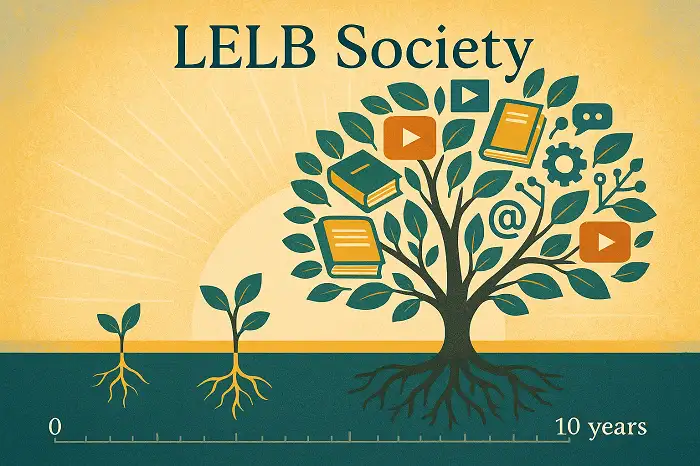IELTS Listening Practice Self-confidence IELTS Listening Practice Self-confidence About this activity This activity is labeled round table by Dr. Hariri, the creator and administrator of LELB Society. This activity is on the premise of Flipped Learning, according to which the students watch a video before the class, carry out research into the selected theme, and prepare themselves for an informed discussion in the class. This activity is on the basis of both synchronous and asynchronous computer-mediated communication (CMC), according to which the students are also encouraged to be active even before the class. In this flipped classroom activity, the students are encouraged to utilize the comment form at the bottom of the post to to exchange their questions, findings, and experiences with each other. Later on, ...
Home » Listening Practice in English » IELTS Listening Practice Self-confidence

IELTS Listening Practice Self-confidence
Updated: by Dr. Mohammad Hossein Hariri Asl
Time to Read: 5 minutes | 479 Views | 29 Comments on IELTS Listening Practice Self-confidence
Share This Post
About the Author
Dr. Mohammad Hossein Hariri Asl is an English and Persian instructor, educator, researcher, inventor, published author, blogger, SEO expert, website developer, entrepreneur, and the creator of LELB Society. He's got a PhD in TEFL (Teaching English as a Foreign Language).
Number of Posts: 4242



where is confidence come from ?
Corrections:
where ➡ Where
Where does confidence come from?
Please put a number before your question.
Correction:
13- Where does confidence come from?
Thanks for your correction and being active in this activity.
12. How can you explain the origin of confidence by focusing on the “nature vs. nurture” principle?
11. Why are people who have a growth mindset more successful than others?
People with a growth mindset tend to be more successful because they believe that their abilities and intelligence can be developed through dedication and hard work. This perspective fosters a love of learning and resilience essential for great accomplishments.
10. How can confidence lead people to accept difficult challenges?
Confidence empowers people to embrace difficult challenges by instilling a belief in their ability to succeed. When individuals are confident, they are more likely to take risks and step out of their comfort zones, viewing challenges as opportunities for growth rather than obstacles to be avoided.
9. Are you born with self-confidence, or is it taught?
Self-confidence is not something people are inherently born with; rather, it is developed over time through experiences, learning, and personal growth. While some individuals may have a naturally more optimistic or resilient disposition, self-confidence is largely influenced by external factors such as upbringing, social interactions, and achievements.
8. What is the meaning of “pep talk”?
A “pep talk” is a short, encouraging speech intended to motivate and inspire someone to overcome challenges or perform at their best. It’s often used to boost morale, build confidence, and instill a sense of enthusiasm and determination, especially before an important event or task. Whether it’s in sports, work, or personal situations, a pep talk aims to uplift spirits and reinforce a positive mindset.
7. How can failure boost our confidence?
Failure can boost our confidence by teaching us valuable lessons and demonstrating our resilience. When we encounter failure, we learn to navigate challenges, develop new strategies, and improve our skills. This process fosters a growth mindset, where we view setbacks as opportunities for growth rather than as insurmountable obstacles.
6. What do fixed mindset and growth mindset mean?
A fixed mindset is the belief that abilities and intelligence are static and unchangeable traits. People with a fixed mindset often avoid challenges, give up easily, and feel threatened by the success of others because they see it as a reflection of their own limitations.
In contrast, a growth mindset is the belief that abilities and intelligence can be developed through dedication and hard work. Individuals with a growth mindset embrace challenges, persist in the face of setbacks, and see effort as a path to mastery. They are inspired by others’ success and view it as a source of motivation rather than a threat.
5. How can we boost our confidence in a short time?
Boosting confidence quickly can be achieved through a few key strategies. Start by practicing positive self-talk—remind yourself of your strengths and past achievements. Stand or sit up straight and maintain good posture, as body language can influence how you feel about yourself. Engaging in a brief physical activity, like a short walk or some stretching, can also elevate your mood and confidence. Visualization is another powerful tool; imagine yourself succeeding in the task ahead.
4. What are the practical tips that cultivate our confidence?
Cultivating confidence can be achieved through various practical tips, such as positive self-talk, setting achievable goals, practicing self-care, embracing failure, seeking feedback, continuous learning, paying attention to your body language, and celebrating your success.
3. What is the major role in confidence development?
Corrections:
role in ➡ role of
2. What factors does impact on confidence?
Corrections:
What factors impact on …
You cannot use the modal auxiliary verb, “do /does”, in this type of question.
1. What does confident mean?
I think it was better to say” What is confidence?”
You are right. That is much better.
You should revise your comment in this way: What does confidence mean?